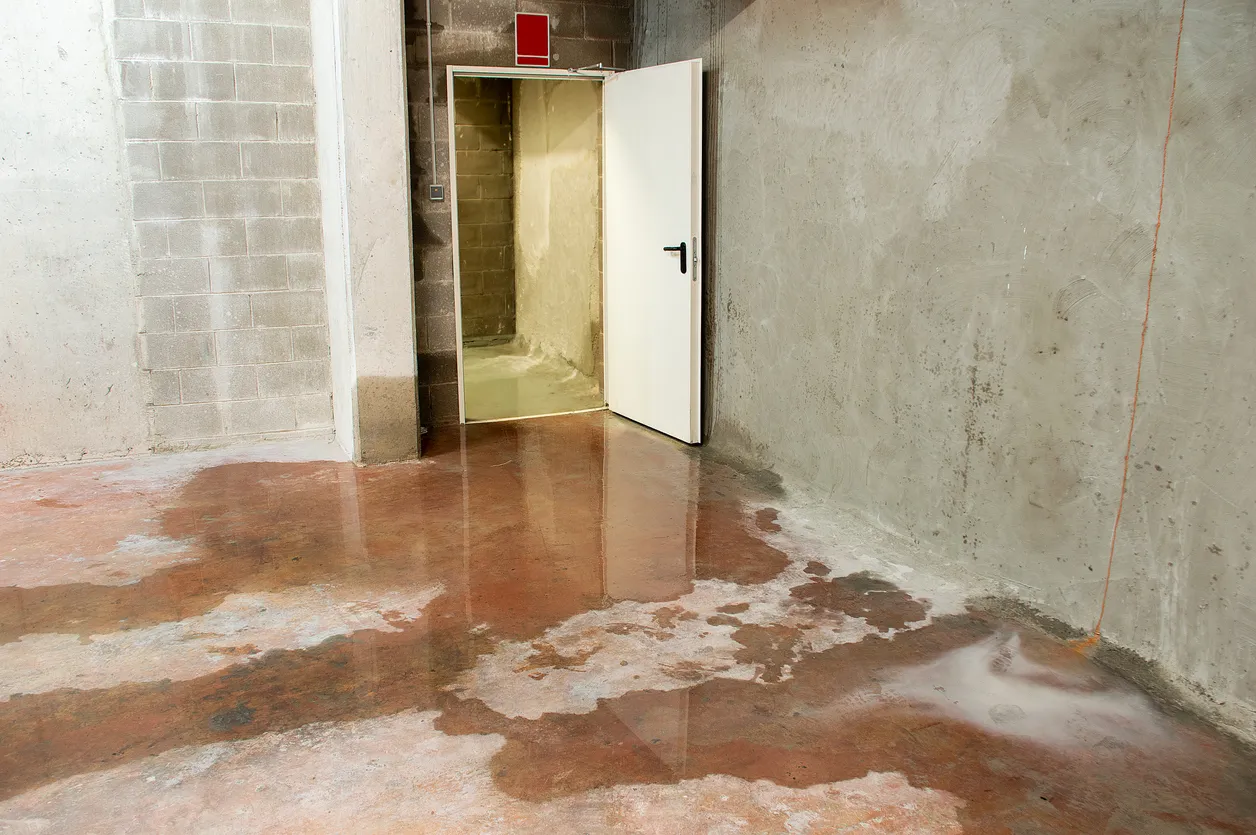A wet basement is more than just a nuisance—it’s a red flag that your home may be vulnerable to serious structural issues, mold growth, and damage to personal belongings. Whether you’re seeing small puddles after a heavy rain or dealing with consistent dampness, understanding the cause of your basement water leaks is the first step to finding a lasting solution.
In this article, we’ll break down the top reasons why water leaks into your basement, and what you can do to protect your home.
1. Poor Drainage Around Your Home’s Foundation
One of the most common causes of basement leaks is poor surface drainage. If water is not being directed away from your foundation, it can pool around your home and eventually seep through cracks or gaps.
Clogged gutters, short downspouts, and sloping yards that direct water toward the foundation are all contributors. Over time, this constant exposure weakens the integrity of your basement walls and increases the chance of leaks.
2. Cracks in Foundation Walls or Floor
Concrete is strong, but it’s not immune to cracking. As your home settles over the years, small hairline cracks can form in the foundation walls or basement floor. Water will always follow the path of least resistance, and even a small crack is enough for moisture to find its way in.
These cracks can be caused by hydrostatic pressure (the pressure of groundwater pushing against your foundation), poor construction, or temperature fluctuations. If left untreated, they often grow worse over time.
3. Hydrostatic Pressure
Hydrostatic pressure occurs when water in the soil surrounding your basement builds up and pushes against the foundation walls. This often happens after heavy or prolonged rainfall, especially in areas with poor soil drainage.
This pressure can force water through even the smallest gaps in your basement walls or floor. In severe cases, it can lead to bowing walls, leaks, or even structural damage.
4. Window Well Issues
If your basement has windows below ground level, window wells are supposed to protect them from water intrusion. But if those wells don’t have proper drainage—or if they fill with leaves and debris—they can become a direct funnel for water.
Once water builds up in a clogged or poorly sealed window well, it can easily seep through window frames and end up inside your basement.
5. Failed Waterproofing Systems
Some homes are equipped with waterproofing systems like sump pumps, vapor barriers, or French drains. However, these systems require maintenance. A sump pump that fails during a rainstorm or a clogged interior drain tile can quickly result in water backup.
If your system hasn’t been inspected in years or was improperly installed, it may not be doing its job effectively.
6. High Water Table or Seasonal Changes
In some areas—especially places with a high water table—seasonal changes can cause basement leaks. When the water table rises in spring or after a rainy season, groundwater levels can exceed the depth of your basement, leading to unexpected moisture or flooding.
This is especially common in older homes without proper waterproofing or those built below grade level.
7. Plumbing Leaks
While many leaks come from outside the home, don’t overlook internal sources. Leaky pipes, malfunctioning water heaters, or overworked HVAC systems can all result in water pooling in your basement. These are often mistaken for exterior leaks but require a completely different repair approach.
What’s the Solution?
Water in your basement is never something to ignore. While some homeowners attempt DIY fixes, the most effective approach is to work with professionals who specialize in identifying and fixing the root cause—not just the symptoms.
For homeowners looking to protect their homes with expert waterproofing services, Basement Waterproofing Lancaster, PA provides comprehensive solutions tailored to your property’s unique needs. From foundation repair to interior drainage systems, they offer proven methods to keep your basement dry year-round.
Final Thoughts
Basement leaks don’t just happen—they’re a sign that something is going wrong beneath your home’s surface. By understanding the underlying causes, you can take the right steps to prevent long-term damage and costly repairs.
Don’t wait for the problem to get worse. Take action now to keep your home safe, dry, and secure for years to come.
Keep an eye for more latest news & updates on Today!




